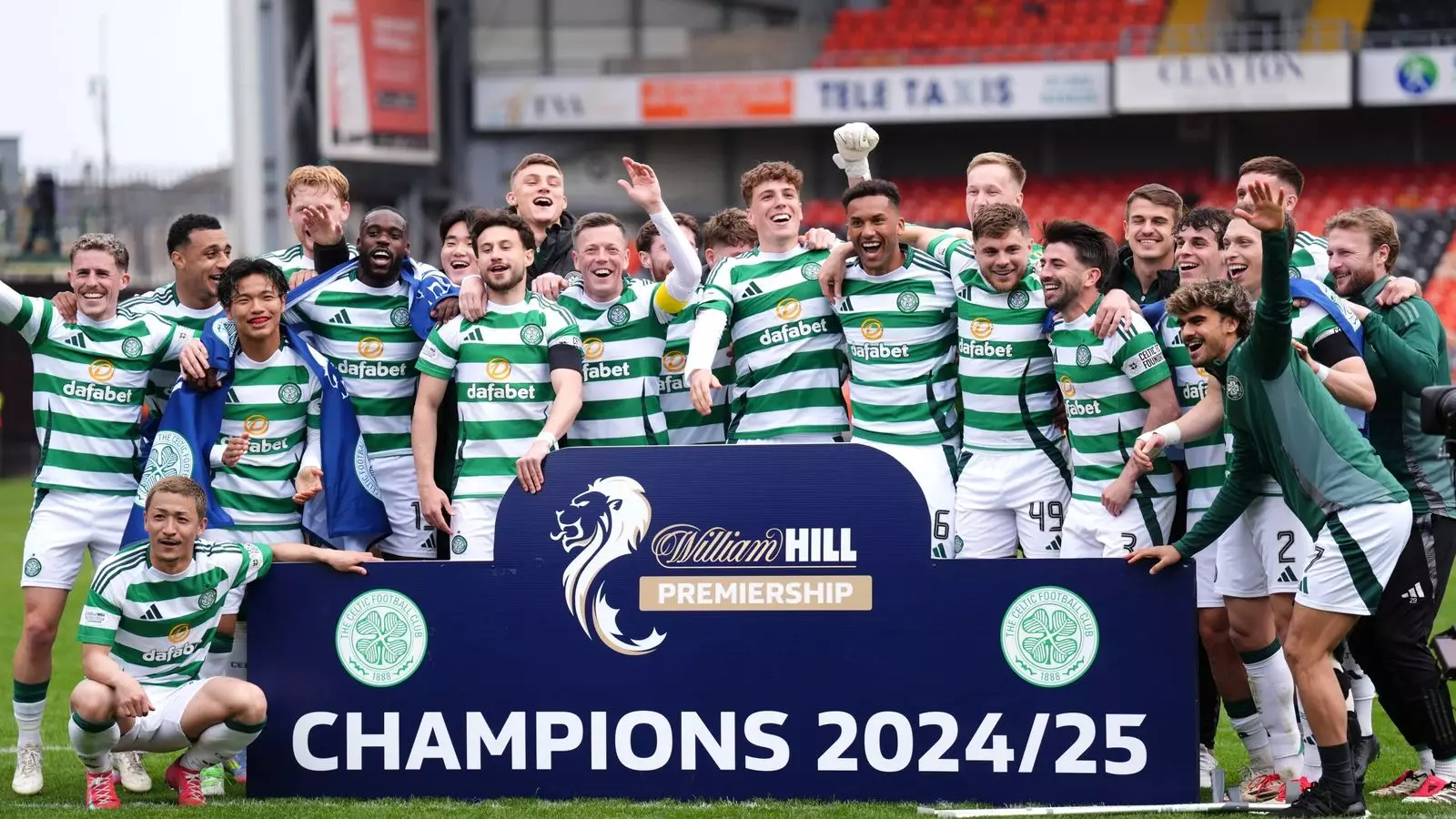Celtic Football Club, a titan of the Scottish Premiership, recently secured their fourth consecutive league title in commanding fashion, demolishing Dundee United 5-0 in front of a sizable crowd. The triumph not only underscored their dominance in Scottish football, with Celtic now clinching 13 titles in the last 14 years, but it also positioned them on the brink of an extraordinary treble for the second consecutive season. Manager Brendan Rodgers, whose relentless ambition has transformed the club into a fierce competitive force, conveyed an infectious hunger for further success. Celtic’s reinforcement of their superiority was highlighted by new records, including winger James Forrest earning his 26th winners’ medal, surpassing the renowned Bobby Lennox.
However, these accolades were starkly juxtaposed with a palpable atmosphere of discontent among the fans. Their fervent love for the club was on display, but so too was their frustration regarding ticket prices, which led to an unforgettable and unusual protest amidst the celebration.
The Protest: A Tangy Statement on Ticket Pricing
The match was momentarily halted due to an odd yet powerful statement from Celtic’s supporters, who littered the pitch with tangerines—symbolic fruit that linked to Dundee United’s nickname, the Tangerines. Their reasoning was clear: the exorbitant ticket prices, which soared to £42 for away fans, were deemed unacceptable when local supporters could gain entry for merely £10. This direct and audacious display showcased not only their displeasure but raised significant questions about the accessibility of football.
With chants echoing through the stands, calling attention to this financial squeeze, the fans altered the narrative from mere celebration to one focused on advocating for their right to witness the game they love without breaking the bank. As Celtic soared to victory, their cheeky banners proclaimed, “Enjoy the fruits of our labour,” effectively critiquing a system that looks to monetize every aspect of the beautiful game.
The fans’ use of fruit as a medium of protest may have seemed humorous, but the underlying message resonated much deeper, revealing a disturbing trend in football: the disconnect between clubs’ financial practices and the working-class roots that sustain them.
A Tribute to Pope Francis and Community Spirit
While the spectacle of the match unfolded, an important tribute was also paid to Pope Francis, who was being honored on the day of his funeral. A minute of silence was meticulously observed, highlighting the duality of the event—one marked by celebration on the pitch and another steeped in somber remembrance. The Celtic supporters further honored the late pontiff with banners and chants, underscoring a sense of community that transcended sport. This moment served as a poignant reminder that while football ignites fiery passions, deeper connections exist within the heart of its supporters—a blend of joy, sorrow, and respect that paints an intricate tapestry of the football culture.
The Broader Implications for Football Culture
As the streets of Glasgow celebrate yet another triumph, one must ponder the long-term implications of these ticket prices and the fans’ outcry. Is the commercialization of football erasing the roots of passion, inclusivity, and community? Absolutely. Without ordinary fans who fuel the game with their devotion, clubs risk losing touch with those who form the backbone of their identity. The juxtaposition of overwhelming victory and discontent outlined a substantial rift within the culture of football that could endanger the sport.
Brendan Rodgers’ pursuit of success will undoubtedly continue, leading Celtic towards greater heights. Still, his aspirations must not overshadow the basic tenets that bind the team to its loyal fanbase. The success of a club can never truly be measured solely by trophies; it should also include the spirit of its supporters—their ability to access the game and celebrate without feeling exploited. If clubs fail to address these concerns, they could jeopardize their own future, while fans may be left feeling more like consumers than passionate advocates of their beloved teams.


Leave a Reply